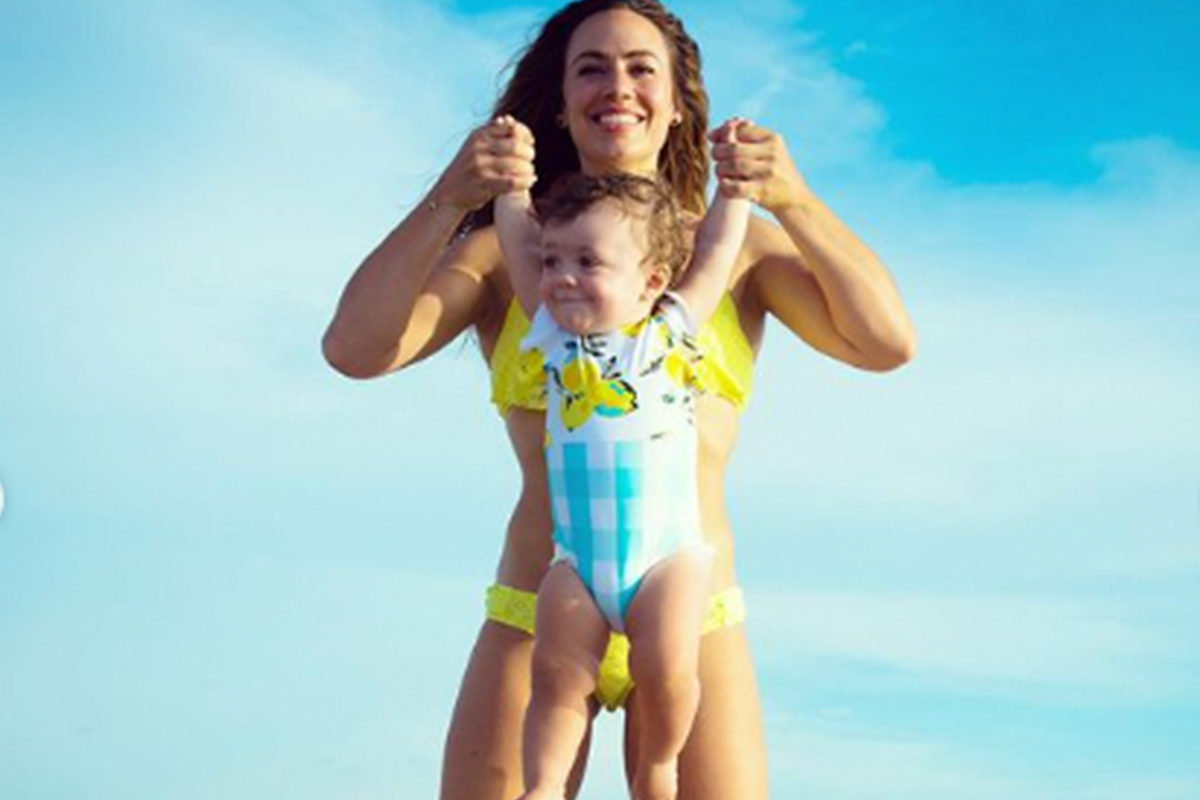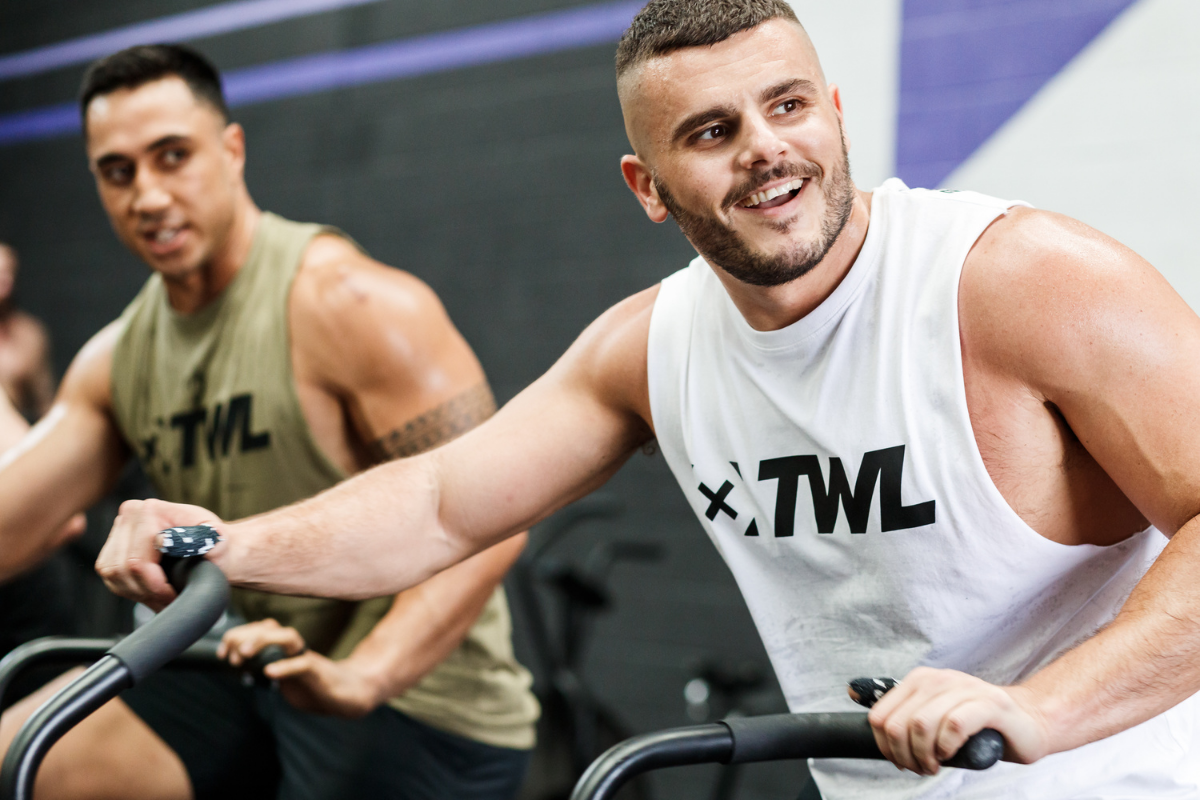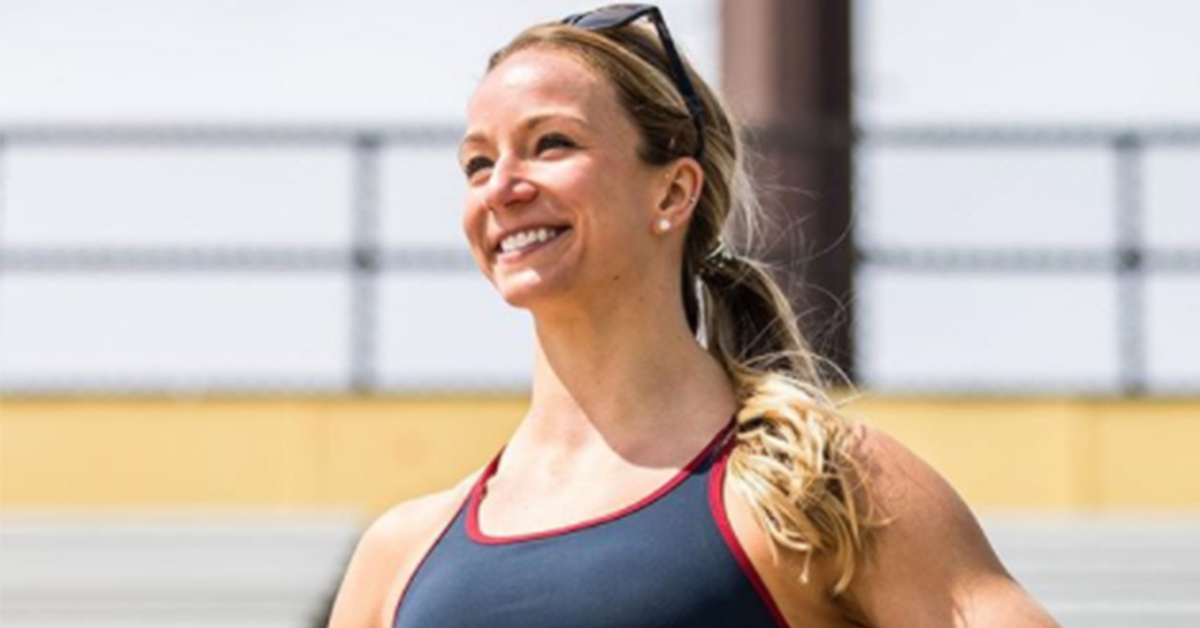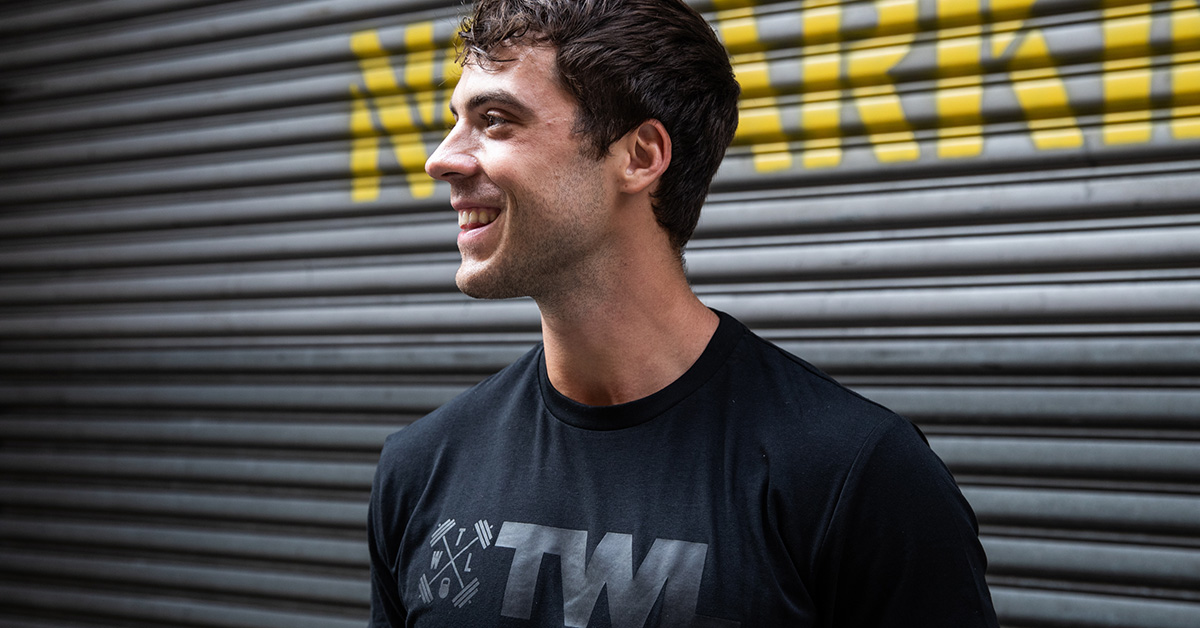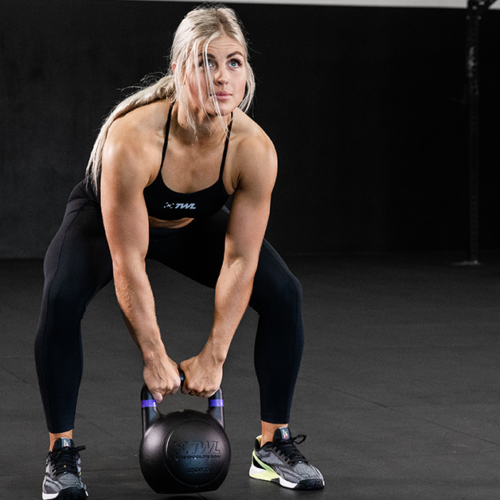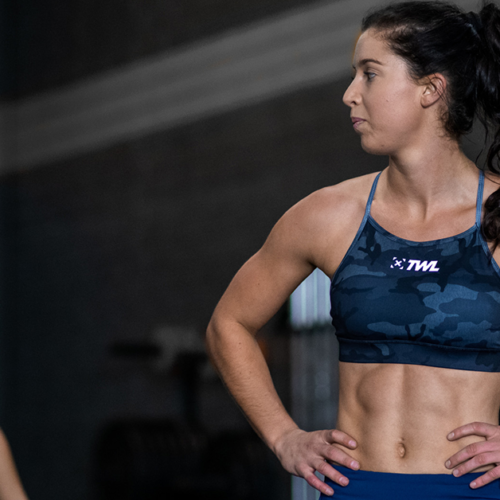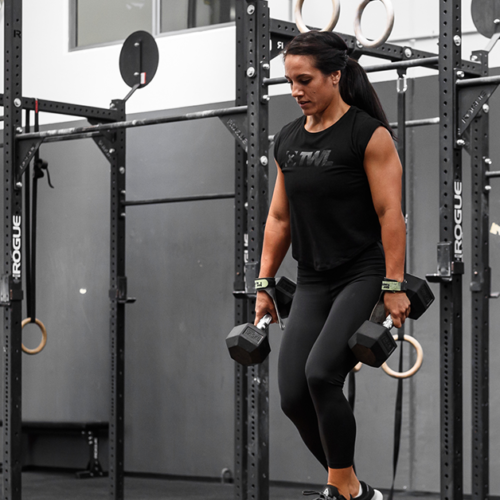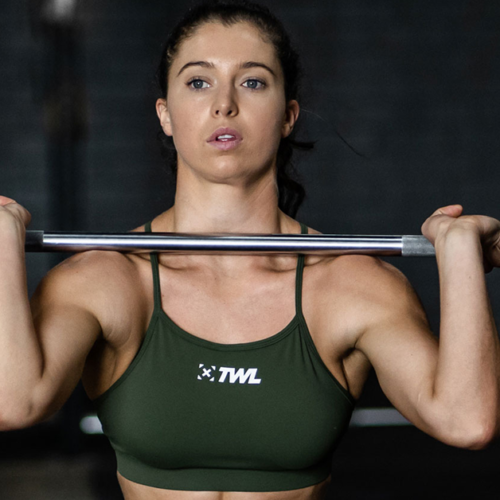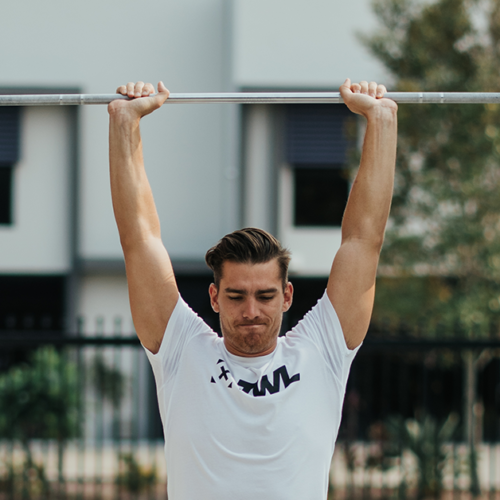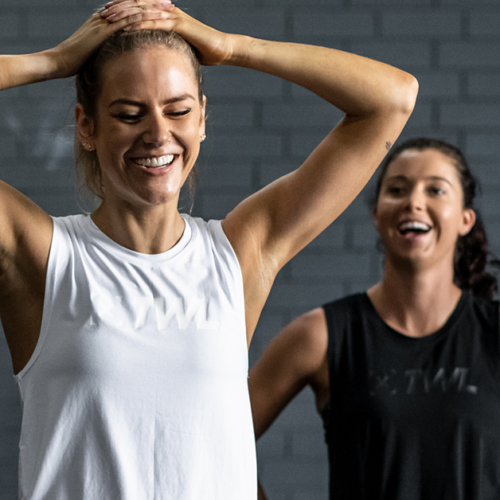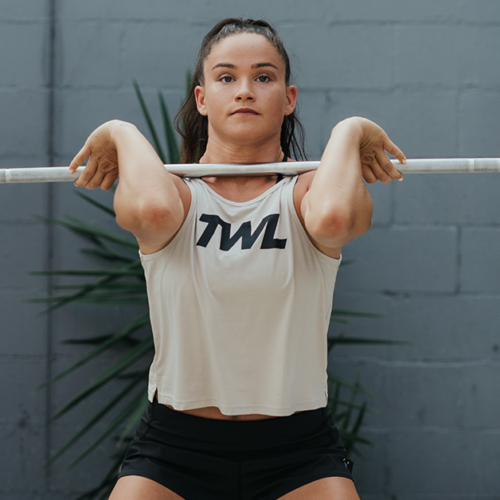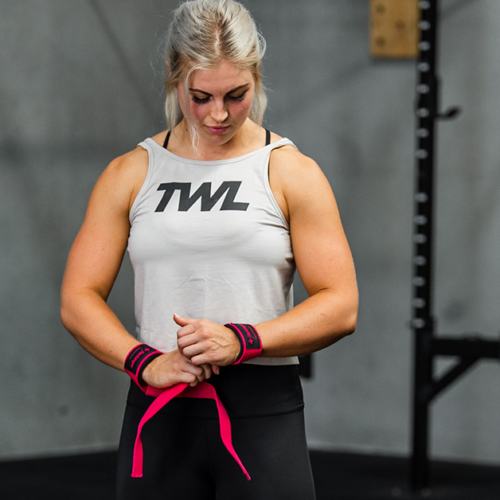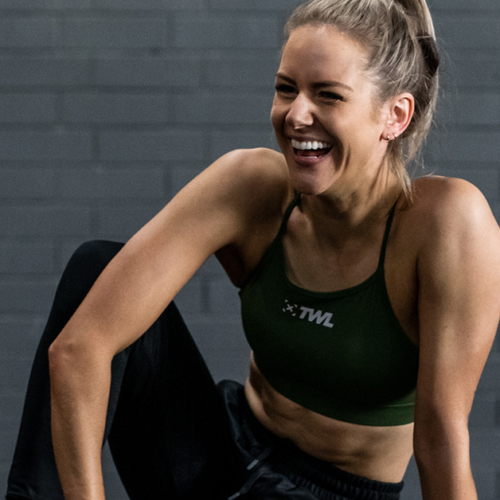Regardless of who you are — whether you are an adaptive athlete or you are a coach who works with adaptive athletes or you are just on the outside looking in when it comes to this community — chances are you have a few assumptions about people with disabilities who train at the gym. The WOD Life reached out to two well-known adaptive athletes to find out what all of us should know about the athletes who come into our gyms and do workouts a little differently.
Zack Ruhl is an adaptive athlete and coach who was born without femurs due to a congenital defect. Both of his legs were amputated when Zack was two years old, but he never got prosthetics and he did not use a wheelchair at all until his mid-20s. Zack prides himself on his independence and helps the adaptive athletes he trains make moves toward independence on their own.
Krystal Cantu was only a few months into doing CrossFit when a car accident led to the amputation of her right arm. She went back to her box a month later, first donning a weighted vest and running. “I just wanted to be in shape again like the way I was before,” she said. Before long, she was teaching herself how to do lifts with one arm. The words “I’m an adaptive athlete” never crossed her mind.
Ruhl and Cantu list six things everyone should know about adaptive athletes.
6 Things You Need to Know About Adaptive Athletes
1. We Are Not Helpless
“People that know me and see my videos and have seen me do muscle-ups, all this crazy stuff,” Ruhl said, “they still ask me if I need help pumping my gas.”
Not that it is wrong to offer someone help, but Ruhl gets frustrated by the seemingly constant assumption that if someone is in a wheelchair, they cannot do things for themselves. The way a person who is paralyzed or has amputated limbs goes about life may not be the same as their non-adaptive neighbor, but that does not mean they are incapable of taking care of themselves or putting their own weights away.
2. We Do Not Want to Be the Center of Attention
It can get really old being singled out and spotlighted strictly because of a disability.
“Make them feel like they’re just another member at your gym, because I can guarantee you they don’t want to feel like this extra special person getting all this attention,” Cantu said.
3. We Do Not Always See Our Own Potential
The first thing Ruhl does when he is training wheelchair athletes is get them away from their wheelchair. This forces them out of their comfort zone and shows them they do not need the tool they have grown so dependent on. “It’s okay to use it as a crutch,” Ruhl said, “but there’s a time and a place, and you’re never going to get the fitness you want if you’re staying in your wheelchair all the time.”
Ruhl is all about setting small goals for his athletes — small goals that are easily attainable and eventually lead to a big goal.
“I’ve never had an adaptive athlete come to me and see their potential the way I’ve seen it,” Ruhl said. “They always come in with their head down … until they start seeing a little progress and they actually start believing it.”
4. We Are Still Athletes
“I love competing and I hate competing,” Ruhl said, “because I feel like people look at us and they’re just like, ‘Awww.’”
He understands that there is a “wow factor,” but when he is competing, he wants to be seen as a competitive athlete, not just a feel-good, inspirational story. He does not have legs, but his bench press record is not impressive solely because of that: 501.5 pounds is on par with Arnold Schwarzenegger in his prime.
5. CrossFit is Not the Only Thing We Do
When Cantu got involved in competitive adaptive CrossFit a few years ago, her Instagram became a sort of tribute to the sport and erased just about every other part of her identity. To her followers, she was Krystal Cantu, adaptive CrossFit athlete. But in reality, CrossFit only took up a couple hours of each day; there was (and is) much more to her as a person.
“I used to have athlete on my Instagram page and everything,” she said. “I’ve just taken that down completely, because it’s no longer going to define me.”
Cantu wants people, adaptive and non-adaptive alike, to remember there is more to life than CrossFit, and there is more to every individual athlete than their ability to work out.
6. We Are People, First and Foremost
Before we are athletes, before we are amputees or paraplegics or anything else, we are people. So do not reduce us to just one thing and do not be content to think of us as two-dimensional beings with no depth of emotion or intellect. We are people just like you with hopes, dreams, and disappointments, who are chasing after our best lives and happened to find CrossFit along the way.
Interviews and blog by Meredith Sell
Main image: Krystal Cantu/Instagram



